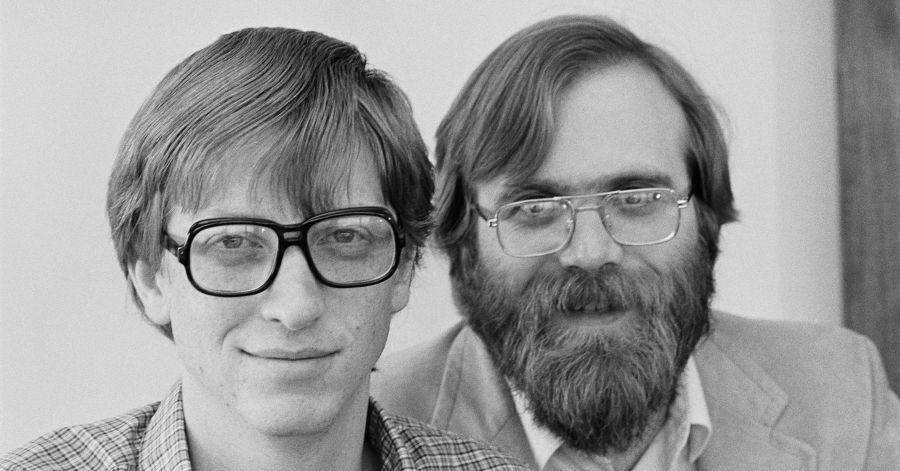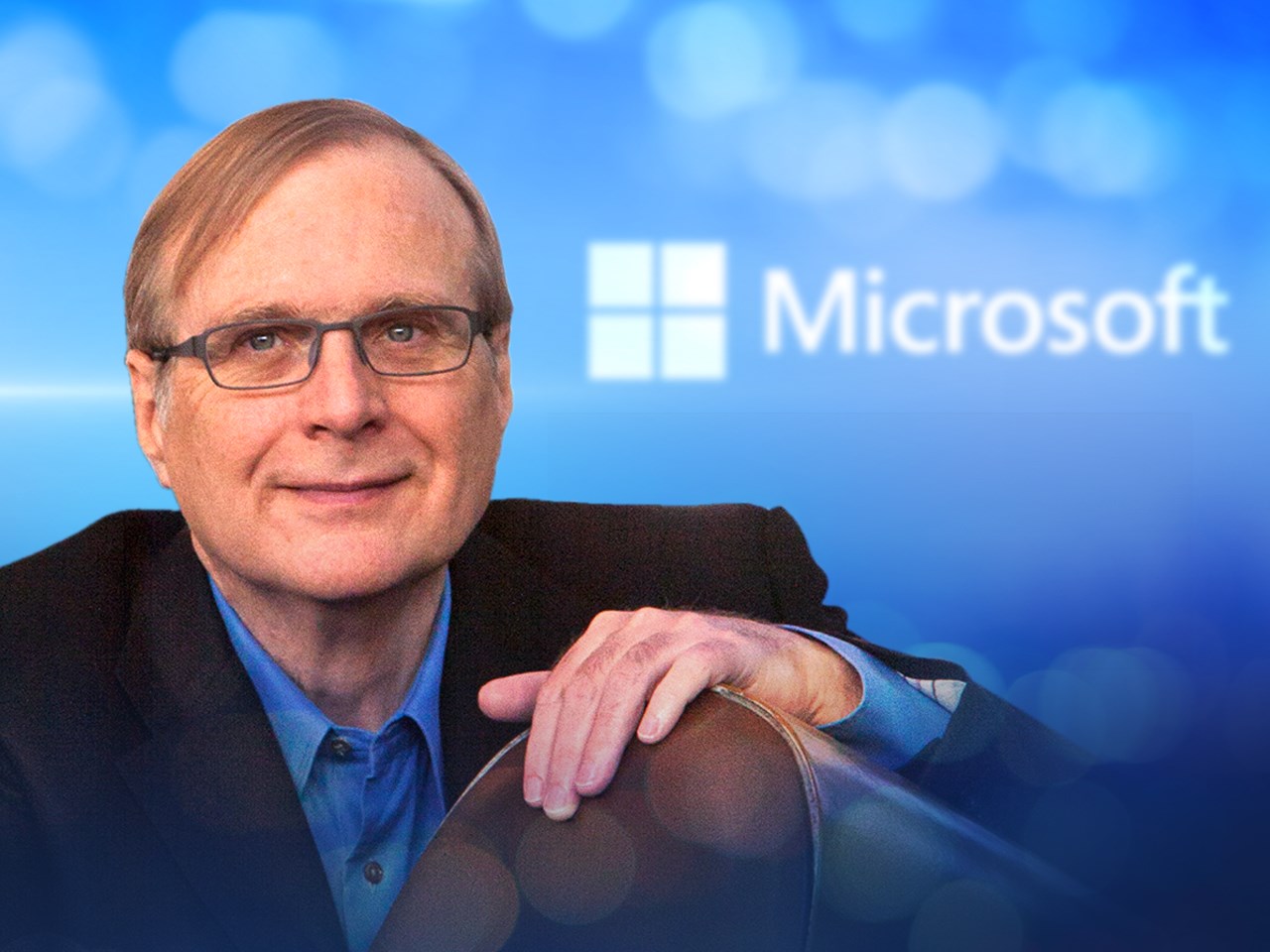Microsoft co-founder Paul Allen died at the age of 65 on October 15, 2018. The technology pioneer, billionaire investor and owner of two US professional sports teams and also a well-known philanthropist passed away on a Monday afternoon after combating non-Hodgkin’s lymphoma cancer for many years – reported on deadorkicking.com.
Allen founded the software company we call Microsoft in 1975 together with his childhood friend Bill Gates. Only eight years later, he left Microsoft because even then the doctors had diagnosed him with lymph node cancer. Allen defeated the cancer several times, most recently nine years ago, but he remained in poor health. According to US media, Allen had recently announced that he would be treated again for lymphoma cancer.
IMAGE: WSJ
A Remarkable Individual On Every Level
“My brother was a remarkable individual on every level,” said Jody who was Paul Allen’s sister. “While most people knew Paul Allen as a technologist and philanthropist, he was a beloved brother and uncle to us and a special friend.” Allen’s generosity and stubbornness moved millions of people in his commitment to create a better world said Vulcan CEO Bill Hilf in a message commemorating his death.
Paul Allen was instrumental in developing an operating system for the computer giant IBM’s first personal computer. He achieved that with MS-DOS that laid the foundation for Microsoft’s success. The most significant breakthrough happened when in 1980 IBM decided not to develop the operating system for the first personal computer themselves but to buy it from Allen and Gates’ company.
Until His Death, Paul Allen Was One Of The Wealthiest People In The World
Recently, Forbes estimated his fortune at just over $20 billion, and he did not use that wealth all on himself. Instead, the Microsoft co-founder donated large sums of money to charity. He also was involved in big real estate investments focusing on the urban development of the US West Coast and the city of Seattle. He was the proud owner of the American football team Seattle Seahawks and the basketball team Portland Trail Blazers.
“Without him, PCs, as we know them, would not exist;” words Bill Gates once said about Paul Allen.
Together, the two tech geniuses founded Microsoft. The company made both men billionaires. Presently, the Windows operating system runs on most desktop computers. He was not only a businessman. Over the past few decades before his death, Paul Allen spent a large part of his money on combating climate change, on brain research, and finding solutions to some of the Earth’s greatest challenges.
“If it has the potential to do good, then we should do it,” as Gates once cited Allen. He was heartbroken over having lost one of his oldest and dearest friends.
Allen spent more than two billion dollars on education, science, technology, environmental protection and more over the course of his life. “Those fortunate enough to gain great wealth should use it for the good of humanity,” Allen wrote several years ago when he announced that he was going to give most of his fortune to charitable purposes.
The magazine ‘Wired’ once called Allen the “accidental zillionaire” – not without reason. He was a programmer who coined the name Microsoft and contributed much to the initial success of the company, albeit in the shadow of his partner’s sharp wit and merciless business acumen. For example, Paul Allen was once persuaded by Gates to agree to a 40 percent shareholding of the company they founded together, letting Gates take the majority. After some more pressure, Allen gave in to Gates’s insistence for a second time and accepted an even smaller share of 36 percent. “My heart did not depend on it, so I agreed,” he later wrote in his memoirs.
Allen was born in 1953 in Seattle. After completing his schooling at the private school Lakeside, where he met Gates, he studied for two years at the University of Washington. The two friends dropped out of college to realize their vision: ‘a world with a computer in every home.’
“There would be no Microsoft, as we know it, without Paul Allen,” said longtime technology analyst Rob Enderle, a onetime consultant to Allen. Allen and Gates founded Microsoft in Albuquerque, New Mexico. The company’s first product was a computer language for a hobby computer called Altair so that amateurs could program and operate it. After gaining some initial sales success with their MS-Basic programming language, they moved the company to Bellevue, not far from its future headquarters in Redmond.
Microsoft’s big breakthrough came in 1980 when IBM decided to enter the fledgling PC market. They asked Microsoft to develop an operating system for them. Gates and Allen immediately agreed, even though they did not have one at the time. To get things going, the two men bought an operating system called QDOS from another start-up based in Seattle. Of course, they did not say that IBM was their customer. The rest is history. Soon, the Microsoft-refined operating system became the core of IBM PCs, catapulting Microsoft into the major league and making the company the top dog in the industry.
In 1983, the first versions of Microsoft products Word and Windows came on the market. A little under ten years later in 1991, Microsoft’s operating systems were used by 93 percent of the world’s PCs.
“We were extraordinary partners,” Allen wrote about Gates. “Despite our differences, few have shared such a unified vision.” Paul Allen was a fighter until his death. Already in 1983, he was diagnosed with Hodgkin’s disease. That did not stop him. In 1986 he founded the company Vulcan as an umbrella corporation for his business and charitable activities that included an institute for brain research, a company for satellite launches and more.
“I am heartbroken by the passing of one of my oldest and dearest friends, Paul Allen. From our early days together at Lakeside School, through our partnership in the creation of Microsoft, to some of our joint philanthropic projects over the years, Paul was a true partner and dear friend. Personal computing would not have existed without him. But Paul wasn’t content with starting one company. He channeled his intellect and compassion into a second act focused on improving people’s lives and strengthening communities in Seattle and around the world. He was fond of saying, ‘If it has the potential to do good, then we should do it.’ That’s the kind of person he was. Paul loved life and those around him, and we all cherished him in return. He deserved much more time, but his contributions to the world of technology and philanthropy will live on for generations to come. I will miss him tremendously.” Words from Bill Gates’ moving tribute about his longtime friend after his passing.
All in all, Allen only stayed with Microsoft for eight years, his boyhood friendship with Gates having cooled down. He was not involved in developing the famed Windows operating system and the Office software package. In his memoirs ‘Idea Man,’ he speaks of an eavesdropped conversation between Gates and his new strongman, Steve Ballmer. The two had planned to reduce Allen’s shareholding in the company via stock tricks. They complained that he did not contribute enough. But Allen resisted. He kept his stake. The remaining shareholding was enough to make him one of the richest people in the world. His fortune has been estimated at well over $20 billion at the time of his death. His most prominent and most famous single investment was the purchase of 18.5 percent of the animation studio Dreamworks. Also, Allen’s real estate company Vulcan built much of the Amazon campus in Seattle.
Not only did Allen know how to invest, but he also knew how to enjoy his wealth while never stopping with his philanthropic work. His 415-foot long motor yacht ‘Octopus’ ranks among the top 20 in the world. At the same time, Allen donated more than $2 billion to various charitable causes, such as the protection of the oceans.
In 2018, when Jeff Bezos, Amazon founder and wealthiest man in the world with a $150 billion fortune, successfully fought a new Seattle tax that would be used for social housing, Allen blatantly donated $30 million to a low-income housing complex.
Despite their difficulties at Microsoft, Gates and Allen remained friends until the end of his life. Gates published some moving words after the death of his longtime companion. “He always liked to say, ‘If something has the potential to do good, then we should do it.’ He was that kind of person.” Gates concluded his post, “I’ll miss him terribly.”
If you are interested in even more technology-related articles and information from us here at Bit Rebels then we have a lot to choose from.


COMMENTS